With new technologies revolutionizing data collection, wildlife researchers are becoming increasingly able to collect data at much higher volumes than ever before. Now we are facing the challenges of putting this information to use, bringing the science of big data into the conservation arena. With the help of machine learning tools, this area holds immense potential for conservation practices. The applications range from online trafficking alerts to species-specific early warning systems to efficient movement and biodiversity monitoring and beyond.
However, the process of building effective machine learning tools depends upon large amounts of standardized training data, and conservationists currently lack an established system for standardization. How to best develop such a system and incentivize data sharing are questions at the forefront of this work. There are currently multiple AI-based conservation initiatives, including Wildlife Insights and WildBook, that are pioneering applications on this front.
This group is the perfect place to ask all your AI-related questions, no matter your skill level or previous familiarity! You'll find resources, meet other members with similar questions and experts who can answer them, and engage in exciting collaborative opportunities together.
Just getting started with AI in conservation? Check out our introduction tutorial, How Do I Train My First Machine Learning Model? with Daniel Situnayake, and our Virtual Meetup on Big Data. If you're coming from the more technical side of AI/ML, Sara Beery runs an AI for Conservation slack channel that might be of interest. Message her for an invite.
Header Image: Dr Claire Burke / @CBurkeSci

Explore the Basics: AI
Understanding the possibilities for incorporating new technology into your work can feel overwhelming. With so many tools available, so many resources to keep up with, and so many innovative projects happening around the world and in our community, it's easy to lose sight of how and why these new technologies matter, and how they can be practically applied to your projects.
Machine learning has huge potential in conservation tech, and its applications are growing every day! But the tradeoff of that potential is a big learning curve - or so it seems to those starting out with this powerful tool!
To help you explore the potential of AI (and prepare for some of our upcoming AI-themed events!), we've compiled simple, key resources, conversations, and videos to highlight the possibilities:
Three Resources for Beginners:
- Everything I know about Machine Learning and Camera Traps, Dan Morris | Resource library, camera traps, machine learning
- Using Computer Vision to Protect Endangered Species, Kasim Rafiq | Machine learning, data analysis, big cats
- Resource: WildID | WildID
Three Forum Threads for Beginners:
- I made an open-source tool to help you sort camera trap images | Petar Gyurov, Camera Traps
- Batch / Automated Cloud Processing | Chris Nicolas, Acoustic Monitoring
- Looking for help with camera trapping for Jaguars: Software for species ID and database building | Carmina Gutierrez, AI for Conservation
Three Tutorials for Beginners:
- How do I get started using machine learning for my camera traps? | Sara Beery, Tech Tutors
- How do I train my first machine learning model? | Daniel Situnayake, Tech Tutors
- Big Data in Conservation | Dave Thau, Dan Morris, Sarah Davidson, Virtual Meetups
Want to know more about AI, or have your specific machine learning questions answered by experts in the WILDLABS community? Make sure you join the conversation in our AI for Conservation group!
No showcases have been added to this group yet.
- @Gabonia
- | He/him
GABriel ONIfade A. (GABONIA / mrGab), is an educator, a CS and AI advocate, a Data Engineer, an AI Engineer, an Entrepreneur, and curriculum developer based in Brooklyn, New York (NYC DOE District 19). With a background in Systems Engineering, Gabriel specializes in CS & AI Edu.
- 1 Resources
- 1 Discussions
- 4 Groups
- @siddharth119
- | He/Him
Co-founder of Habitat Robotics, a conservation-tech non-profit
- 0 Resources
- 0 Discussions
- 3 Groups
- @Kwabs22
- | He
I'm a dynamic environmental conservationist driving change through research and innovation. I merge farming experience with agroforestry skills and drone technology, fueled by a passion for sustainable agriculture, championing a greener future for a sustainable food system.
- 0 Resources
- 0 Discussions
- 3 Groups
Conservation X Labs
Inventor/Engineer at Parula Innovations, Hardware Engineer for Sentinel at Conservation X Labs, (Recovering) Field Biologist
- 0 Resources
- 0 Discussions
- 6 Groups
Research software engineer working in computer vision for animal behaviour
- 1 Resources
- 1 Discussions
- 13 Groups
Xeno-canto
Co-founder and admin of Xeno-canto.
- 0 Resources
- 2 Discussions
- 2 Groups
- @yvetteehlers
- | she
I am the regional ecologist for South-Eastern KwaZulu-Natal at Ezemvelo KZN Wildllife and a honorary research fellow at the Centre for Functional Biodiversity at the School of Life Sciences, University of KwaZulu-Natal.
- 0 Resources
- 5 Discussions
- 2 Groups
I help conservation scientists spend less time on boring stuff.


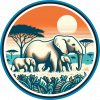
- 0 Resources
- 54 Discussions
- 6 Groups
- @mlamb2
- | she/her
PhD Student working on a computer vision model to detect colonial waterbirds along the Texas coast in aerial imagery
- 0 Resources
- 3 Discussions
- 3 Groups
- @ppalencia
- | Dr
I am Pablo Palencia, a postdoctoral researcher at Biodiversity Research Institute (IMIB). I am interested on develop and fine-tuning cutting-edge tools for wildlife management and conservation, wit a special mention of camera trapping ;)
- 0 Resources
- 0 Discussions
- 7 Groups
I'm a young conservationist from Ghana with over 7 years experience in Pangolin Conservation. My focus in Conservation is the human dimension of conservation. I am currently the manager for the Onepone Endangered Species Refuge.
- 0 Resources
- 0 Discussions
- 8 Groups
Natural Solutions
Computational ecologist - Engineer at Natural Solutions (France)



- 0 Resources
- 1 Discussions
- 13 Groups
The recent Ramsar Conference in Victoria Falls, Zimbabwe, underscored the critical importance of wetland conservation and the need for innovative solutions to protect these vital ecosystems.
16 August 2025
The AI for Climate Resilience Program is a new initiative by Klarna that aims to support pioneering projects that leverage artificial intelligence for climate adaptation in underserved, climate-vulnerable regions.
6 August 2025
Read about the advice provided by AI specialists in AI Conservation Office Hours 2025 earlier this year and reflect on how this helped projects so far.
6 August 2025
If you're a Post-Doctoral Fellow, a PhD student, or a member of the research staff interested in applying your computational skills to support active research publications, please read on to learn about the Cross-...
5 August 2025
If you're a PhD student, post-doc, advisor, or marine expert - Plan Vivo is looking for you!
5 August 2025
A free, self-paced course series for nonprofit professionals is available through August 31.
31 July 2025
Link
The GeoCroissant team is conducting a short survey (5–10 minutes) to better understand user needs and preferences around geospatial metadata in machine learning. Your input will support the development of an open...
28 July 2025
Careers
This role will investigate the potential of large-scale deep learning models, for constructing 3D models of coral reefs
28 July 2025
🔥 Excited to join the WILDLAB community! I’m Robert Chonge — a Full Stack Developer with a passion for AI and Big Data, now channeling that tech firepower toward environmental conservation.Let’s turn data into action...
26 July 2025
El Instituto Humboldt está buscando un(a) Desarrollador(a) de Inteligencia Artificial que quiera aplicar su experiencia en Python y procesamiento de lenguaje natural para proteger la biodiversidad.
25 July 2025
The Marine Innovation Lab for Leading-edge Oceanography develops hardware and software to expand the ocean observing network and for the sustainable management of natural resources. For Fall 2026, we are actively...
24 July 2025
Dear colleagues, I'd like to share with you the output of the project KIEBIDS, which focused on using AI to extract biodiversity-relevant information from museum labels. Perhaps it can be applied also to other written...
17 July 2025
August 2025
event
September 2025
event
event
event
event
October 2025
event
event
event
December 2025
event
March 2026
November 2023
event
event
17 Products
Recently updated products
| Description | Activity | Replies | Groups | Updated |
|---|---|---|---|---|
| Environment conservation in Great Rift Valley. |
|
AI for Conservation | 19 hours 5 minutes ago | |
| Hi Chris! Send me a direct message and we can have a chat! |
+5
|
AI for Conservation, Autonomous Camera Traps for Insects, Camera Traps | 1 day 6 hours ago | |
| Hey people of the world. 10 days ago I posted here about our new GUI tool where one could drag-n-drop an image and get animals detected on... |
|
AI for Conservation | 2 days 1 hour ago | |
| Hi @CourtneyShuert We support NOAA with AI for individual ID for belugas (but from aerial and from lateral surface too). If some of our techniques can be cross-applied... |
|
AI for Conservation, Data management and processing tools | 1 week ago | |
| Hello Eugene, I just tried your service:Was wondering how possible will it be to have the option to upload a second image and have a comparison running to let the user know if... |
|
AI for Conservation, Camera Traps, Data management and processing tools, Software Development | 1 week ago | |
| Kudos for such an innovative approach—integrating additional sensors with acoustic recorders is a brilliant step forward! I'm especially interested in how you tackle energy... |
|
Acoustics, AI for Conservation, Latin America Community, Open Source Solutions | 1 week 1 day ago | |
| Thank you for your reply! It surely helps, we have use exif for a while to read metadata from images, when there is information available. Could be nice to maybe see if we... |
|
AI for Conservation, Camera Traps | 1 week 4 days ago | |
| You could just throw out that data, but I think you'd be doing yourself a disservice and missing out on some interesting insights. Are you training the AI with just pre-COVID... |
|
AI for Conservation, Animal Movement, Data management and processing tools, Human-Wildlife Coexistence | 2 weeks ago | |
| Would love to collaborate on this we are curently building agents for conservation Kind regardsOlivier |
|
AI for Conservation, Community Base | 2 weeks ago | |
| This is such a compelling direction, especially the idea of linking unsupervised vocalisation clustering to generative models for controlled playback. I haven’t seen much done... |
|
Acoustics, AI for Conservation, Emerging Tech | 2 weeks 3 days ago | |
| Hello.I am in need of assistance.I need a website for a project I am working on.Thanks 😊 |
|
Software Development, AI for Conservation | 2 weeks 4 days ago | |
| Wow this is amazing! This is how we integrate Biology and Information Technology. |
|
Camera Traps, AI for Conservation, Build Your Own Data Logger Community, Data management and processing tools, Marine Conservation, Protected Area Management Tools, Geospatial | 2 weeks 5 days ago |
Meetup: Machine Learning/AI on Earth Observation Data (23 July, London)
21 June 2019 12:00am
New open data site for fisheries
10 June 2019 7:17pm
Workshop & Challenges on Computer Vision for Wildlife Conservation (CVWC) at ICCV 2019
5 June 2019 6:51am
Technology companies, FCO, and conservation NGOs come together to scale technology solutions to end wildlife crime
4 June 2019 12:00am
AI for Earth Innovation Grant (extended)
4 June 2019 12:00am
CogX Festival of AI and Emerging Technology - free tickets for WILDLABS members
16 May 2019 12:12pm
3 June 2019 4:53pm
Are there any free tickets left for CogX?
I am on anthony.peake@agiledatum.com
3 June 2019 5:04pm
yep! Drop me an email at stephanie.odonnell@wildlabs.net and I'll get you a link.
Steph
How machine learning can help fight illegal wildlife trade on social media
31 May 2019 12:00am
GWP Webinar Recording: Using SMART at scale for effective wildlife protection
21 May 2019 12:00am
WILDLABS TECH HUB Showcase
17 May 2019 12:00am
Meet the WILDLABS TECH HUB Winners
13 May 2019 12:00am
Huge appetite for data trusts, according to new ODI research
15 April 2019 12:00am
Call for Papers: Data Mining and AI for Conservation Workshop at KDD 2019
15 April 2019 12:00am
Call for Papers: Thematic issue of Environment Conservation on ‘Conservation Artificial Intelligence’
26 March 2019 10:12am
WILDLABS Virtual Meetup: Low Cost, Open-Source Solutions
18 March 2019 12:00am
#Tech4Wildlife Photo Challenge: Our Favourites from 2019
3 March 2019 12:00am
Conserving the Sumatran and Javan Rhino
15 January 2019 7:39pm
23 January 2019 10:12pm
Hello Claire,
Engineer at Wild Me here. We would love to start a conversation about a Wildbook for rhinos.
Lets talk about citizen science and computer vision for identification possibilities. I'm curious about your current data set and the identification tools you are using as a starting point. I'm happy to talk here, or you can email our team at services@wildme.org.
24 February 2019 1:28am
Hi Claire,
At the BearID Project, we are working on a similar problem for brown bears. We are currently using machine learning methods developed for human facial recognition (like Google FaceNet). We got some ok initial results, but now we are running up against small data issues. The method for human faces were trained with millions of images of hundreds of thousandes on individuals. We have a few thousand images of about a hundred individuals. We plan to investigate other methods in the future.
It will be great to keep in touch to see what methods you will be using.
Ed
24 February 2019 1:38am
Hi Colin,
At the BearID Project, we are working on a similar problem for brown bears. We are currently using machine learning methods developed for human facial recognition (like Google FaceNet). We got some ok initial results, but now we are running up against small data issues. The method for human faces were trained with millions of images of hundreds of thousandes on individuals. We have a few thousand images of about a hundred individuals. We plan to investigate other methods in the future.
The last time I talked to WildMe, the identification algorithms were based on matching unique patterns. We didn't think this would be directly applicable for brown bears as they don't have a lot of clearly identifiable markings. Have you developed other identification algorithms?
Ed
Responsible AI for Conservation?
11 February 2019 6:22pm
21 February 2019 8:17am
Hi Jaishanker
Absolutely - the overlap between image-based and sound-based analyses is increasing, and consistent terminology will no doubt help us share info.
Are you using ML in SODA for automated identification of sounds? If so, how are you determining if a given classifier is performing well?
Thanks
Ollie
21 February 2019 11:08am
Hello Ollie,
SODA is a recently launched suite. It is in the development phase. We have with us call libraries with multiple (40+) calls for 10- 12 species of birds. A research scholar is on the job for classifying at the species level.
Our interest is equally on separating the different sonic components (as stated in https://www.wildlabs.net/community/thread/666). It is different from the link shared in my previous reply. This is where I see the confluence of objectives.
As a TEAM, I believe, we can address the individual objectives faster.
regards
jaishanker
21 February 2019 9:13pm
Hi Ollie,
Great article, thank you! I mostly work with responsible AI in other contexts, at Doteveryone.org.uk and the Trust & Technology Initiative at the University of Cambridge, so don't have much to offer here, although I am very interested in the topic. I appreciate your point that many of the consumer data issues highlighted in the 'popular' responsible AI discourse aren't relevant to conservation (some of us have been gathering 'responsible tech' / 'ethical tech' resources in a shared doc, and there's essentially nothing there for conservation specifically - https://docs.google.com/document/d/1SN6hYeKe3eRK6x9D0Sr7GpCA4nirpyo3u68xG1A6NDs/edit ). However there might be some links with humanitarian data practices, which are touched on by the Responsible Data folks at https://responsibledata.io and https://www.fabriders.net/data-literacy-consortium/ or in this recent article https://asecondmouse.wordpress.com/2019/02/20/instability-forecasting-models-seven-ethical-considerations/
Best,
Laura
Using Swiss AI and Drones to Count African Wildlife
18 February 2019 12:00am
ChimpFace: Facial recognition to combat wildlife trafficking
6 February 2019 12:00am
UK’s first data trusts to tackle illegal wildlife trade and food waste
31 January 2019 12:00am
The Ecosulis Rewilding Tech Challenge
14 January 2019 12:00am
WILDLABS Virtual Meetup: Big Data in Conservation
27 November 2018 12:00am
Canopy cameras shed new light on monkey business in Brazil
22 November 2018 12:00am
A technologist's journey to protect wildlife: The reality and potential of conservation technology (recorded talk)
22 November 2018 12:00am
WILDLABS Virtual Meetup: Networked Sensors for Security and HWC Prevention
12 November 2018 12:00am
Tusk Conservation Lecture 2018: Ted Schmitt
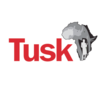 Tusk
Tusk
15 October 2018 12:00am
Biology Undergrad Attempts Automated Species Recognition Using MacBook Air and Google
1 October 2018 12:00am
How to share data on species to help conserve them… whilst avoiding them being exploited by poachers
20 August 2018 12:00am
Ocean Hack: San Francisco, 10-11th September, 2018
 One Ocean Collab
One Ocean Collab
20 August 2018 12:00am
Thermal Sensor Project Update: Testing with live animals at the San Diego Zoo
27 July 2018 12:00am
31 March 2023 2:15pm



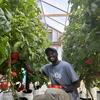



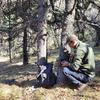















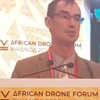
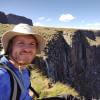


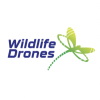





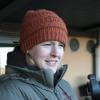














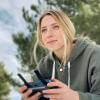









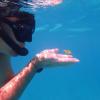

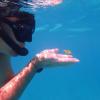














28 May 2019 12:02pm
UPDATE: We've had quite a few members emailing us for tickets, so I'm looking forward to meeting everyone in person! We've now been allocated some extra tickets, so if you are interested you're in luck, there is still a chance to come along.